This article has been updated for the 2025 new car model year. Each year, I enjoy researching and ranking the cheapest new cars sold in the U.S. market and sharing my findings. Transportation is the 2nd highest consumer expense category in the U.S., and almost all of that comes from the purchase or lease of vehicles (plus insurance, which is directly related to a vehicle’s replacement value). With recent inflation, finding an affordable ride is essential for those on a tight budget. This article will provide a ranked list of the 10 cheapest new cars in 2025, ranked by the lowest MSRP for base automatic transmission models (and a number of additional cost factors). You may also be interested in my ranking of the most fuel-efficient cars and cheapest electric vehicles.
If you’re in the market to buy a new car, keep an eye out for new prior year models, to potentially find an even better deal. Dealers are still trying to get rid of prior model year inventory and shift focus to the new 2025 models, so you may be able to catch a good deal. In most cases, the 2025 model is the exact same vehicle as last year’s model.
I have made efforts to limit my vehicle use, but am still somewhat dependent on one and I know many others here are too. As a vehicle consumer, I think it is interesting to see what’s trending in the automotive market and what performance and fuel-efficiencies have been gained. There is value in knowing what to look for now (in the right circumstance) or further down the road.
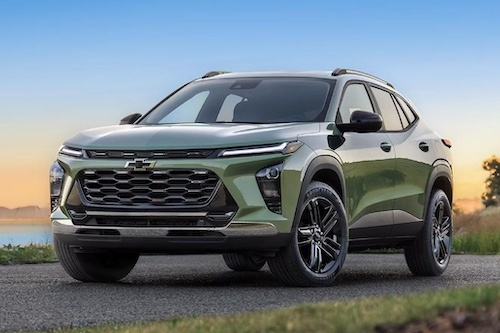
The Chevy Trax jumps to the #2 spot on the cheapest new cars in 2025 list and is my pick the best value vehicle of the year.
Our Cheapest New Cars List: Criteria & Specifications
When looking for the cheapest new cars, there is more to it than just the sticker price. For your convenience, I’ve focused on:
- The base automatic transmission model, without added options. Most of these models no longer offer a manual transmission. If they do, they can be hard to find and sell (only around 2% of the vehicles sold in the U.S. market these days are manual vs automatic transmission). If you can find and drive a manual, it could save you roughly $800 – $1,200 versus the prices highlighted in this article.
- Manufacturer’s Suggested Retail Price (MSRP). There may be credits, rebates, or other incentives available for each model at any given moment. And you should never pay MSRP, as part of an effective new car negotiation strategy.
Also, I’d recommend pricing out vehicles at KBB.com and nadaguides.com to see not only what the MSRP and factory invoice costs are (I’ve included those below), but what actual buyers are paying in your local market.
I’ve also included other variables that impact total cost of vehicle ownership:
- city, highway, and combined MPG fuel efficiency
- average annual fuel cost (from the EPA’s fueleconomy.gov website, at $3.00 per gallon of regular unleaded, and 15,000 miles driven (45% city, 55% highway)
- length of the limited and powertrain warranties
Finally, I’d recommend pricing out insurance premiums at a number of automotive insurers prior to choosing which car to purchase, as prices per vehicle can vary dramatically. No vehicle here will break the bank on insurance costs versus the others, but there may be some differences (e.g. Hyundai and Kia vehicles have had security/theft issues in recent years).
The Cheapest New Cars Have Been Disappearing in Recent Years
We’re solidly within a period of disappointing new market entrants in the economical compact and subcompact car segments. I think there’s a few big reasons for that:
- Up until a few years ago, gas prices had been at low levels for a while. This led to decreased demand for small vehicles, which led to less automaker focus on this segment (there’s a multi-year lag on new model development).
- There is less profit margin to squeeze out of small, cheap cars, so there’s less incentive for automakers to develop and market them.
- Those looking for fuel efficiency are gravitating more and more to hybrid, plug-in hybrid, and electric vehicles – not smaller cars. I explored this further in my ranking of the most fuel-efficient cars and cheapest electric vehicles (linked at the top of the article).
At least 48 new or redesigned cars will hit the U.S. market in 2025. Just one new model – the Kia K4 – makes the cheapest new cars list this year. The 2025 Nissan Kicks underwent a noteworthy redesign, but every other vehicle on this list saw very minor visual updates, at most. Looking at a broader trend, a large number of cheap compact and subcompact vehicles have recently had their production end in recent years. Here’s a shortlist:
- Chevy: Volt, Cruze, Sonic, Spark
- Chrysler: 100
- Dodge: Dart
- Fiat: 500
- Ford: EcoSport, Fiesta, Focus Sedan (hatch will live on), Fusion
- Honda: CRZ, Fit
- Hyundai: Accent
- Kia: Forte, Rio
- Mitsubishi: Mirage
- Nissan: Juke, Rogue
- Smart: ForTwo
- Toyota: Prius C, Yaris
- VW: Beetle, Touareg
Last year’s cheapest new car, the Mitsubishi Mirage (with an MSRP of $17,790), has ended production, but there still may be a small window to pick one up in early 2025, if you’d like. According to Mitsubishi,
Production will cease late this year, and we expect to have sufficient dealer stock to last into the summer of 2025.
While this shift away from small, cheap vehicles makes sense from a business perspective, it’s not a good sign for the future for those who like to have their own vehicle, on a budget.
What’s New in the 2025?
There were a few big changes to the 2025 cheapest cars ranking versus the prior model year. As previously noted, last year’s #1 cheapest vehicle, the Mitsubishi Mirage, ended production last year. The Kia Forte, last year’s #3 cheapest vehicle, also ended production.
One new addition to the list this year is the Kia K4, a brand new vehicle that enters in the #6 spot, and has very similar specs to the Hyundai Elantra (its sister car). The K4 has an interesting value proposition: a good-sized sedan with a powerful engine, strong fuel economy (40 mpg highway), and solid standard tech (e.g. 12.3″ touchscreen display, Apple CarPlay and Android Auto).
The other new entrant to the list this year is the Volkswagen Jetta, which sneaks on to the list due to the Forte and Mirage ending production. The other 8 vehicles on the list are repeats from last year, and only the Nissan Kicks saw a major redesign.
How About Cheap New EVs?
It’s also worth pointing out that a gen 2 Chevy Bolt EV is planned for release in late 2025, for the 2026 model year. If it is at a similar price point to its previous generation and is eligible for a full $7,500 federal Clean Vehicle Tax Credit (as gen 1 was), it could potentially return to the list of the cheapest new cars. Note: not every purchaser of an EV will be eligible for the full credit as there are income limitations. 10 states have EV tax credits too, but that number is declining. And with a new administration that has shown animosity towards EVs, it’s possible that this will be the final year for EV tax credits.
Here’s an updated list of EVs eligible for tax credits with new materials, manufacturing, and sourcing requirements. The list is fairly limited for 2025 while vehicle manufacturers are still adjusting their battery and manufacturing supply chains for eligibility, but due to an EV lease tax credit loophole, many vehicle manufacturers are passing along up to $7,500 in tax credits in the form of EV bonus cash lease offers – even if those same vehicles are not eligible for tax credits on new purchases.
The Cheapest New Cars of 2025: Top 10 Ranking
Here are the top 10 cheapest new cars of 2025 in the U.S. market. Which would you choose, if you were going to buy a new car right now?
10. Toyota Corolla
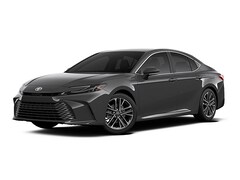
- Base Automatic Transmission model: Toyota Corolla LE, 4-Door Sedan
- MSRP: $23,460
- Factory Invoice Price: $22,219
- Engine Specs: 2.0L, Continuously Variable Auto Transmission (CVT), 16 valve, 4 cylinder, 169 hp
- City MPG: 32
- Highway MPG: 41
- Combined MPG: 35
- Annual Fuel Cost: $1,300
- Powertrain Warranty: 5 years or 60,000 miles
- Limited Basic Warranty: 3 years or 36,000 miles
- Overview: the 2025 Toyota Corolla stays on the list of the cheapest new cars, with a $465 price increase over last year’s model (basically the same car as 2025). If I were considering a Corolla, I’m probably spring for the Corolla Cross hatchback or the hybrid version of the Corolla and Corolla Cross.
9. Volkswagen Jetta
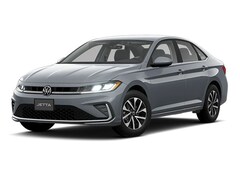
- Base Automatic Transmission model: Volkswagen Jetta S, 4-Door Sedan
- MSRP: $23,220
- Factory Invoice Price: $22,340
- Engine Specs: 1.5L, 8-speed Auto Transmission, 16 valve, 4 cylinder, 158 hp
- City MPG: 29
- Highway MPG: 39
- Combined MPG: 33
- Annual Fuel Cost: $1,350
- Powertrain Warranty: 5 years or 60,000 miles
- Limited Basic Warranty: 4-year or 50,000-miles
- Overview: the VW Jetta joins the list of the cheapest new cars with 2 models from last year dropping off the list. The 2025 Jetta’s MSRP actually declined in price by $165 versus last year. This year’s model even has a slightly refreshed fascia, new grille, and headlamp design. I appreciate that it’s one of the few vehicles on this list still with a non CVT auto transmission. Good job, Volkswagen.
8. Nissan Kicks
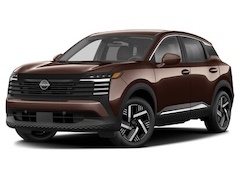
- Base Automatic Transmission model: Nissan Kicks S, 4-Door Hatchback
- MSRP: $23,220
- Factory Invoice Price: $22,638
- Engine Specs: 2.0L, Continuously Variable Auto Transmission (CVT), 16 valve, 4 cylinder, 141 hp
- City MPG: 28
- Highway MPG: 35
- Combined MPG: 31
- Annual Fuel Cost: $1,450
- Powertrain Warranty: 5 years or 60,000 miles
- Limited Basic Warranty: 3 years or 36,000 miles
- Overview: the 2025 Nissan Kicks underwent a pretty extensive list of updates versus the prior year model: it has more ground clearance, is larger, has a more powerful engine, a larger touchscreen, and some nice visual updates – to name a few. One notable downside is that the more powerful engine – formerly 122 horsepower and 1.6L, and now 141 horsepower and 2.0L – resulted in a decline in fuel efficiency from 33 to 31 combined MPG. All of those updates come with a (reasonable) price increase of $905.
7. Hyundai Elantra
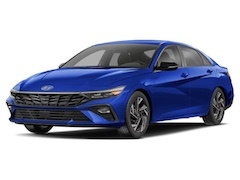
- Base Automatic Transmission model: Hyundai Elantra SE, 4-Door Sedan
- MSRP: $23,220
- Factory Invoice Price: $22,719
- Engine Specs: 2.0L, Continuously Variable Auto Transmission (CVT), 16 valve, 4 cylinder, 147 hp
- City MPG: 32
- Highway MPG: 41
- Combined MPG: 36
- Annual Fuel Cost: $1,250
- Powertrain Warranty: 10 years or 100,000 miles for original owners, 5 years or 60,000 for subsequent owners
- Limited Basic Warranty: 5 years or 60,000 miles
- Overview: the 2025 Hyundai Elantra is virtually the same car as the prior model year, with a price increase of $630 in 2025, which is not great. The fuel efficiency for a 2.0L engine is top notch, as are the generous warranties. The new Kia K4 definitely took some inspiration from its sister-car, the Elantra.
6. Kia K4
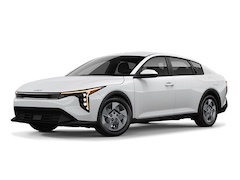
- Base Automatic Transmission model: Kia K4 LX, 4-Door Sedan
- MSRP: $23,165
- Factory Invoice Price: $22,719
- Engine Specs: 2.0L, Continuously Variable Auto Transmission (CVT), 16 valve, 4 cylinder, 147 hp
- City MPG: 30
- Highway MPG: 40
- Combined MPG: 34
- Annual Fuel Cost: $1,300
- Powertrain Warranty: 10 years or 100,000 miles for original owner, 5 years or 60,000 for subsequent owners
- Limited Basic Warranty: 5 years or 60,000 miles
- Overview: a cheap new car entrant in the year 2025? Yes, Kia, there is a Santa Claus! Jokes aside, I think this new sedan form Kia will get some run, as it has a very strong value prop: a good-sized sedan with a 2.0L engine, strong fuel economy (40 mpg highway), and solid standard tech (e.g. 12.3″ touchscreen display, Apple CarPlay, and Android Auto).
5. Nissan Sentra
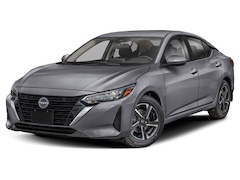
- Base Automatic Transmission model: Nissan Sentra S, 4-Door Sedan
- MSRP: $22,730
- Factory Invoice Price: $21,858
- Engine Specs: 2.0L, Continuously Variable Auto Transmission (CVT), 16 valve, 4 cylinder, 149 hp
- City MPG: 30
- Highway MPG: 40
- Combined MPG: 34
- Annual Fuel Cost: $1,300
- Powertrain Warranty: 5 years or 60,000 miles
- Limited Basic Warranty: 3 years or 36,000 miles
- Overview: there’s not much new to write home about with the 2025 Nissan Sentra. It’s the same as last year’s model, but with a price increase of $825. It still has good fuel efficiency for a 2.0L engine
4. Kia Soul
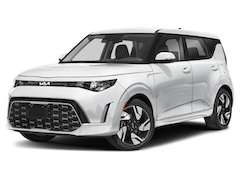
- Base Automatic Transmission model: Kia Soul LX, 4-Door Hatchback
- MSRP: $21,885
- Factory Invoice Price: $21,260
- Engine Specs: 2.0L, Intelligent Variable Transmission (IVT), 16 valve, 4 cylinder, 147 hp
- City MPG: 27
- Highway MPG: 33
- Combined MPG: 30
- Annual Fuel Cost: $1,500
- Powertrain Warranty: 10 years or 100,000 miles for original owner, 5 years or 60,000 for subsequent owners
- Limited Basic Warranty: 5 years or 60,000 miles
- Overview: the 2025 Kia Soul comes with a price increase of $570 versus the prior year’s model. Sadly, the Soul is nearly identical to the Soul that launched 16 years ago, with only slight styling and engine updates along the way. Long overdue for a refresh and fuel efficiency upgrades.
3. Hyundai Venue
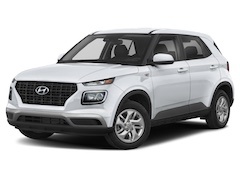
- Base Automatic Transmission model: Hyundai Venue SE, 4-Door Hatchback
- MSRP: $21,550
- Factory Invoice Price: $21,188
- Engine Specs: 1.6L, Continuously Variable Auto Transmission (CVT), 16 valve, 4 cylinder, 121 hp
- City MPG: 29
- Highway MPG: 32
- Combined MPG: 31
- Annual Fuel Cost: $1,450
- Powertrain Warranty: 10 years or 100,000 miles for original owners, 5 years or 60,000 for subsequent owners
- Limited Basic Warranty: 5 years or 60,000 miles
- Overview: the 2025 Hyundai Venue comes with a price increase of $415 versus last year’s model. The Venue has many similarities to its sister model, the Kia Soul, but with more of a rounded, sporty appearance, and it’s slightly cheaper. Lots of value, but like the Soul, just OK fuel efficiency.
2. Chevy Trax
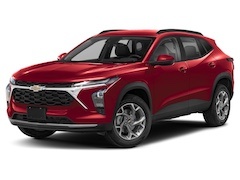
- Base Automatic Transmission model: Chevy Trax LS, 4-Door Hatchback
- MSRP: $21,495
- Factory Invoice Price: $21,169
- Engine Specs: 1.2L, 6-speed Auto Transmission, 12 valve, 3 cylinder, 132 hp
- City MPG: 28
- Highway MPG: 32
- Combined MPG: 30
- Annual Fuel Cost: $1,500
- Powertrain Warranty: 5 years or 60,000 miles
- Limited Basic Warranty: 3 years or 36,000 miles
- Overview: the 2025 Chevy Trax has identical pricing to the prior year model (which came with a $1,400 price decrease and a massive redesign) – boosting it from the #6 position on the cheapest new vehicle list all the way up to #2. I really like the size and styling value for the price. Car & Driver ranked the Chevy Trax as the #1 subcompact SUV for the 2nd year in a row. My only gripe is that the fuel efficiency is not spectacular, despite the tiny 1.2L engine.
1. Nissan Versa
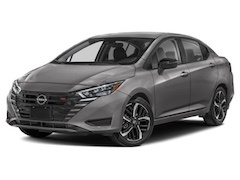
- Base Automatic Transmission model: Nissan Versa S, 4-Door Sedan
- MSRP: $19,075
- Factory Invoice Price: $18,064
- Engine Specs: 1.6L, Continuously Variable Auto Transmission (CVT), 16 valve, 4 cylinder, 122 hp
- City MPG: 32
- Highway MPG: 40
- Combined MPG: 35
- Annual Fuel Cost: $1,300
- Powertrain Warranty: 5 years or 60,000 miles
- Limited Basic Warranty: 3 years or 36,000 miles
- Overview: the 2025 Nissan Versa launches into the #1 spot as the cheapest new vehicle of 2025. In fairness, the prior #1 (the Mitsubishi Mirage) ended production, but the Versa actually decreased in price by $745 versus last year. Sadly, it is the only new car sold in the U.S. market left that is sub-$20,000 (and comfortably so). Congrats, Nissan.
Thoughts on Whether to Purchase a New Car or Not
Now that I’ve shared this list of the cheapest cars, I wanted to share some thoughts on whether it’s worth purchasing a new car or not. This is a personal finance site, so note that sharing this list of the cheapest new cars is not an endorsement for everyone to go out and buy a new car. When it comes to optimizing your finances, vehicle ownership has a few rules that I would suggest readers consider:
- If you can, opt for public transportation, biking, walking, and carpooling, and an occasional rideshare over vehicle ownership. Start with a test run and see if you can progress from there.
- If you have a 2-vehicle household, is it possible for you to shift from 2 vehicles to 1? I shifted from 2 cars to 1 many year ago and it saved us tens of thousands of dollars.
- Get as much run as possible out of your vehicle by properly maintaining it, until the cost of maintenance clearly outweighs the cost benefits of holding on to it. New vehicles these days can often go 15+ years with regular maintenance and my personal goal is to go 10+ years, at a minimum, on each vehicle we purchase.
- If you do need a vehicle, do market research and negotiate the best deal. I don’t believe in the “always buy used” motto, particularly with the elevated prices seen in the used car market in recent years. With proper incentives, a new car may actually be a cheaper total cost option in some cases. Do your homework to find the most economical option for you.
- If you are in the market for a new car and can hold off for a bit, that might be best. The auto industry has started to refill new car inventory after it was heavily depleted in recent years due to supply chain issues.

